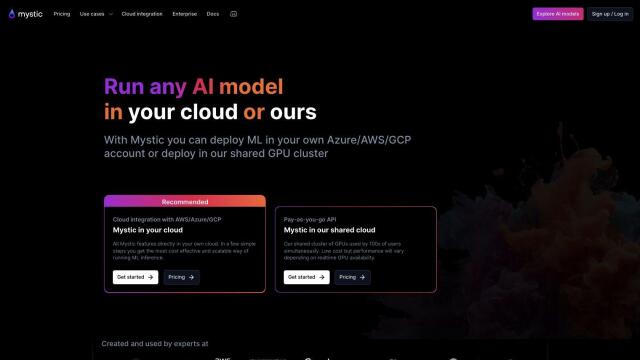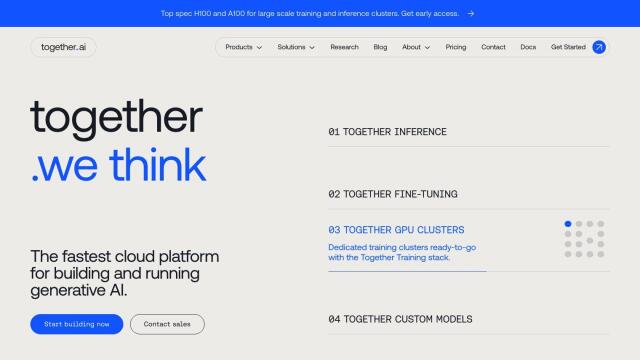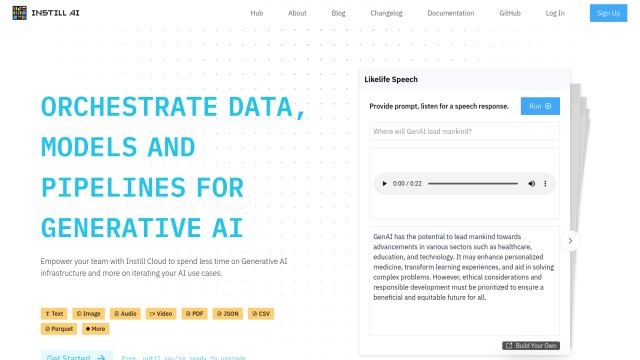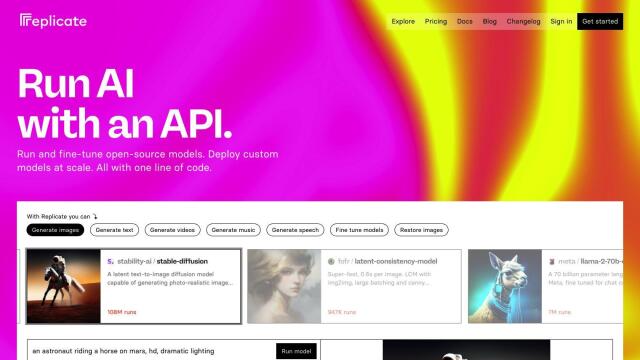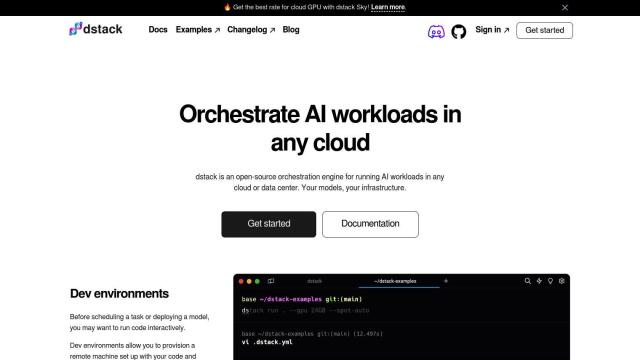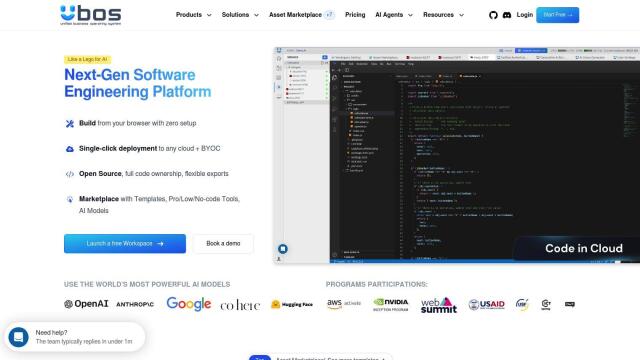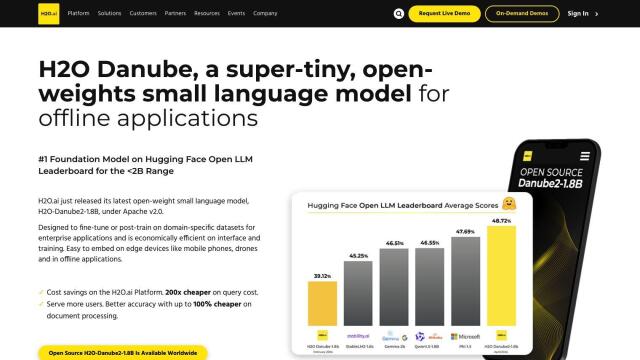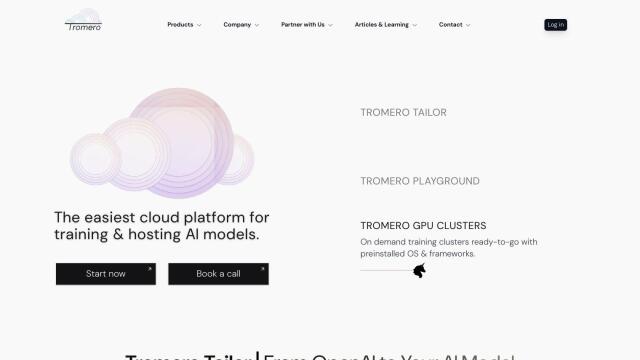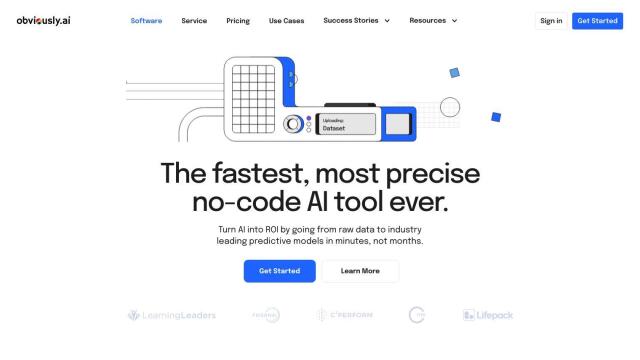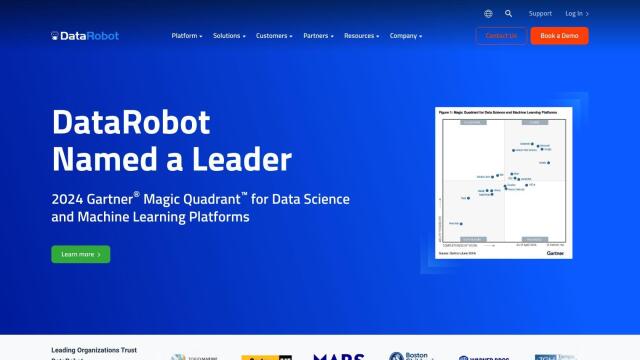Question: Is there a cloud-based AI platform that provides high-performance GPUs and easy deployment of AI workflows, especially for developers?


Anyscale
If you're looking for a cloud-based AI platform with high-performance GPUs and easy deployment of AI workflows, Anyscale is a great choice. It offers the best performance and efficiency with features like workload scheduling, intelligent instance management and heterogeneous node control. Based on the open-source Ray framework, Anyscale supports a broad range of AI models and has native integrations with popular IDEs and persisted storage. It also offers a free tier and customizable pricing for enterprise customers.

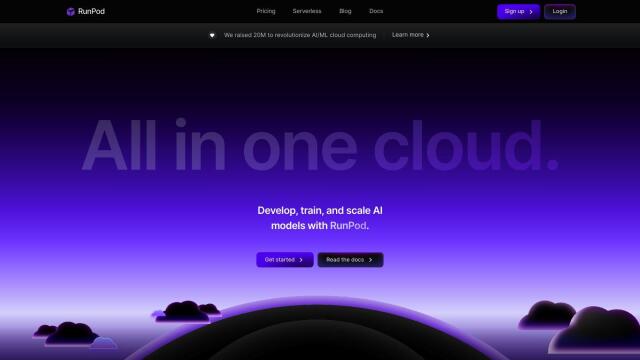
RunPod
Another good choice is RunPod, a globally distributed GPU cloud that lets you spin up GPU pods on demand. With support for more than 50 preconfigured templates for frameworks like PyTorch and Tensorflow, RunPod also offers serverless ML inference and autoscaling. It also has features like instant hot-reloading for local changes and 99.99% uptime, making it a good option for developers.


Salt AI
If you want a platform that balances ease of use with high-performance capabilities, Salt AI is a good choice. It's designed for scalability and fast deployment, so you can build and deploy AI workflows like chatbots and image upscaling directly to Discord or as APIs. Salt AI uses high-end GPUs on a cloud foundation, so it's a good choice for developers who want to try out AI workflows quickly.


Zerve
Finally, Zerve is a powerful platform for deploying and managing GenAI and LLMs in your own architecture. It includes features like an integrated environment that combines notebook and IDE functionality, fine-grained GPU control, and unlimited parallelization. Zerve is self-hosted on AWS, Azure or GCP instances, giving you full control over data and infrastructure. That makes it a good choice for data science teams that want more control and faster deployment of AI workflows.





